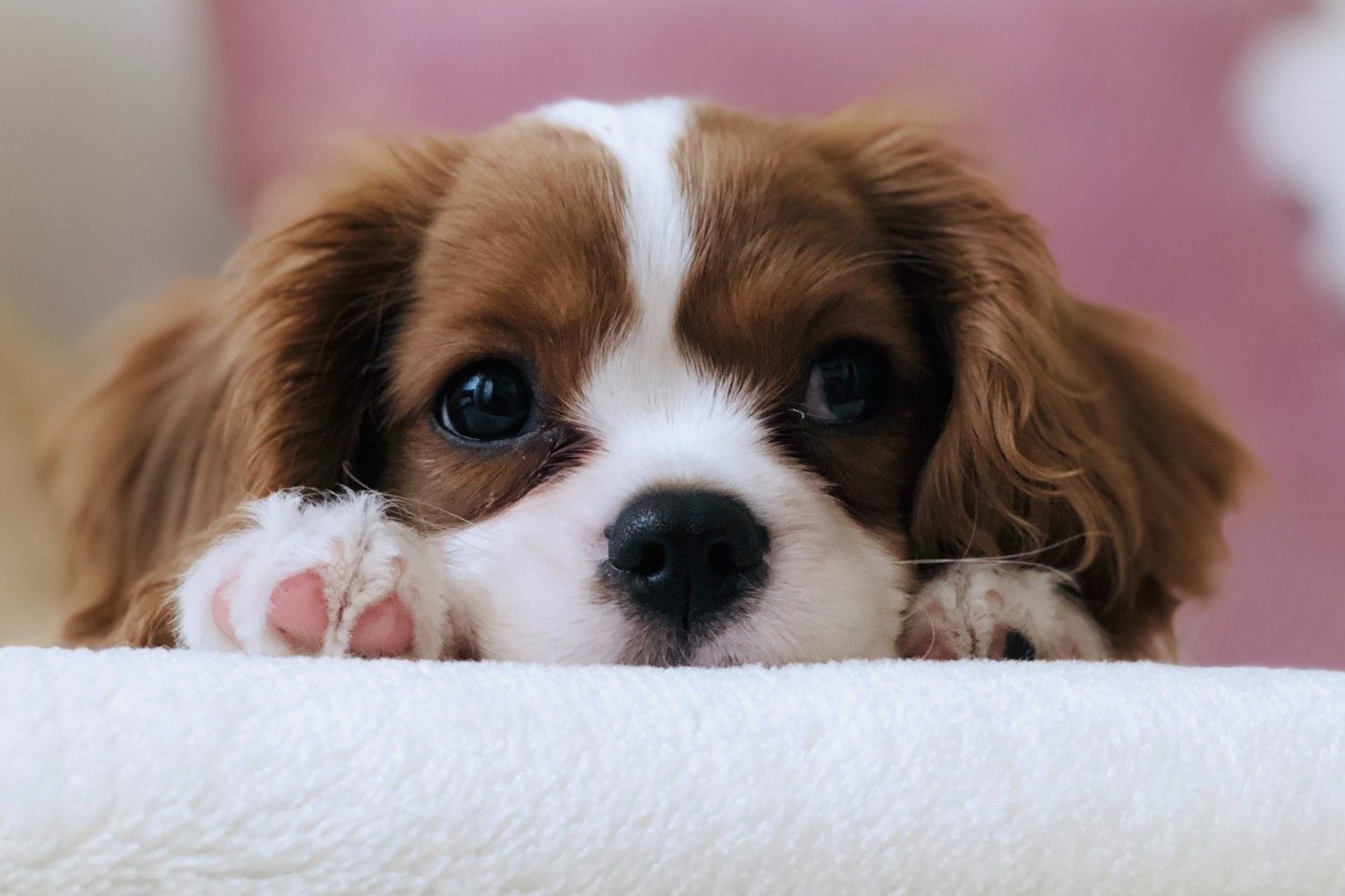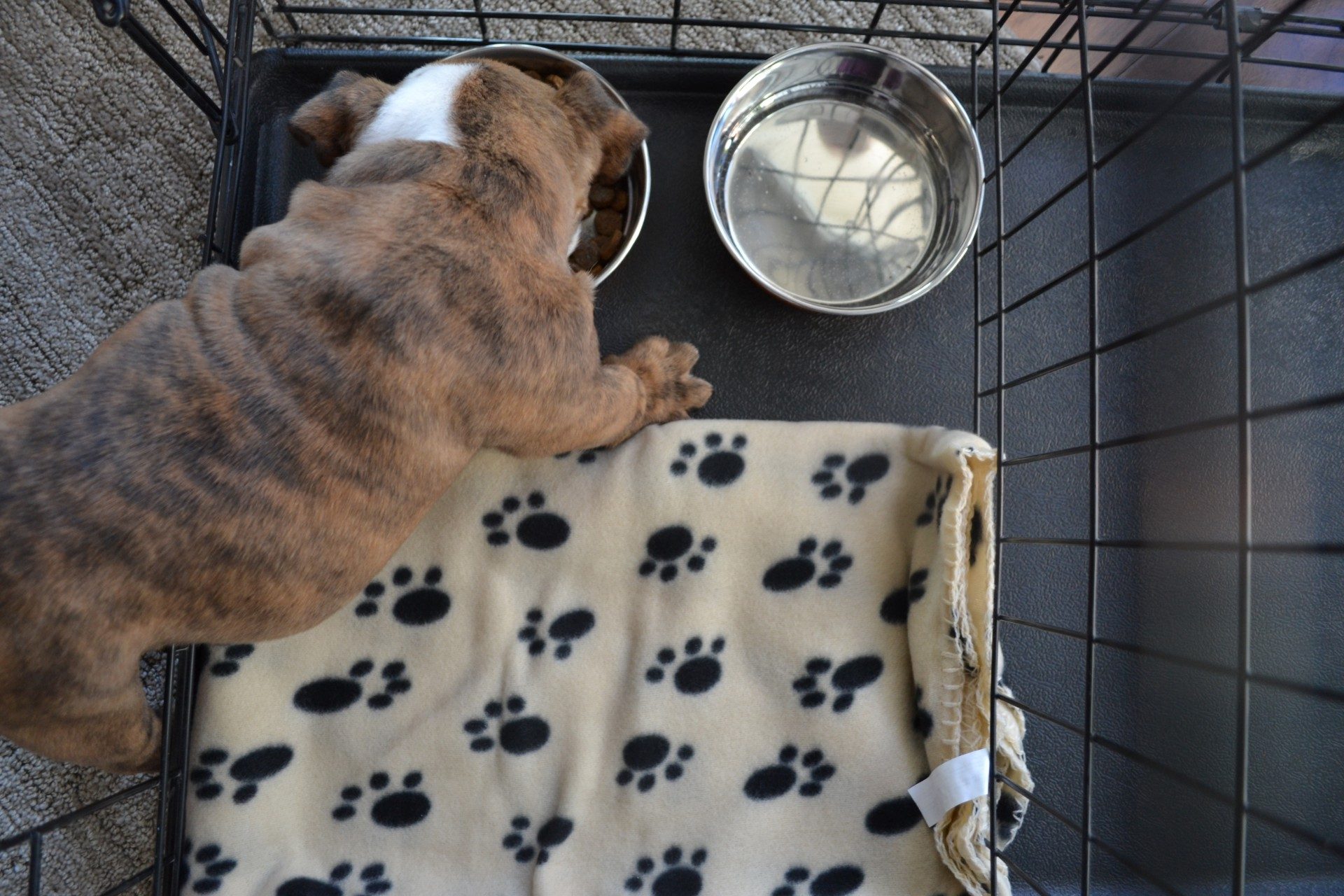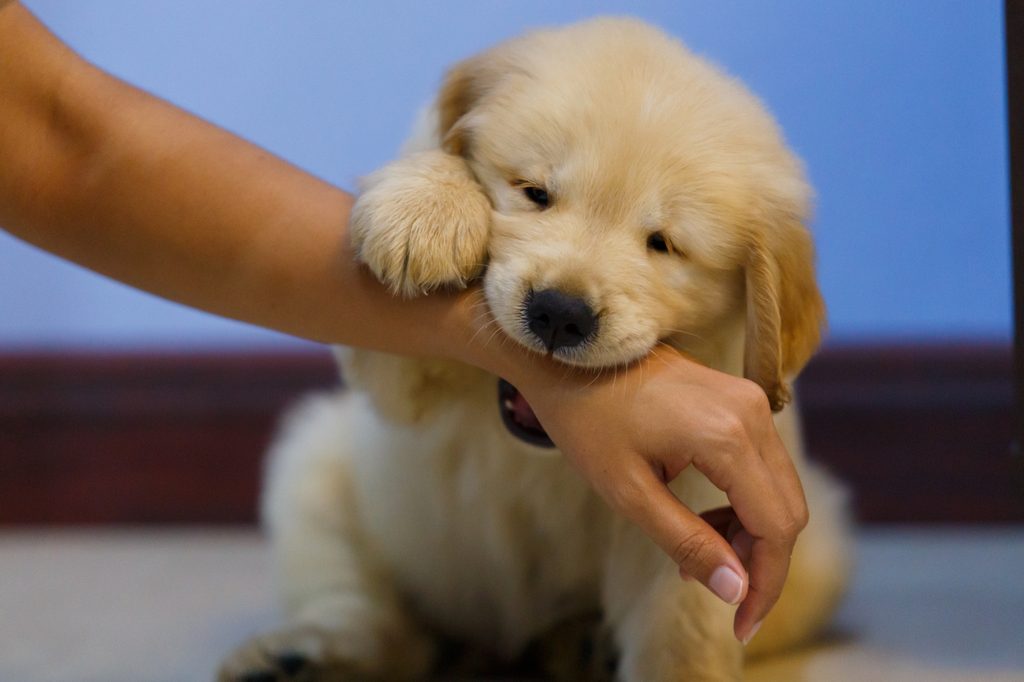You’ve brought your new puppy home from the rescue center, set up their new bed, and gifted them with new toys. But now your puppy is whining all day and night, leaving you clueless and a little sleep-deprived. Look at it this way: Puppies are basically little babies that need care, attention, and just a little bit of firm guidance. Let’s look at ways to stop a puppy from whining and then look over some of its common causes.

Why is my puppy whining? These are the common reasons.
The most important thing to remember about puppy whining is that it’s a very common, usually short-lived phase. Very young pups might just whine because they miss their mom or siblings. In most cases, puppy whining stems from basic needs they haven’t figured out how to communicate yet. It’s best to distinguish their different “whines” to avoid ignoring pleas for legitimate needs.
- Hunger or thirst is one of the most common causes of whining. Set your pup on a regular feeding schedule and make sure they have access to clean drinking water at all times. This will also stop them from trying to eat inedible items around the house like your favorite leather shoe!
- Potty breaks will make your puppy whine especially if you’ve just brought them home or if you’re training them to go outside. If they’re confined to a play area in your living room by a dog fence, take them out consistently to prevent any accidents.
- Boredom can cause your fur baby to whine or act out. Keep them entertained with lots of toys, time outside when possible, and walks. If they’re alone most of the day and whine when you get home, they might just be calling for attention.
- Stress or fear is fairly natural in young puppies. When you first take them home, they might whine because of unfamiliarity. They might also whine when they feel scared at the local dog park or if they hear strange, loud noises.
- Pain or discomfort whines are an important category to distinguish from the rest. Usually, this type of whining will be constant and can be accompanied by other symptoms like not wanting to be pet or picked up, not wanting to eat, and not being their usual self. If this is the case, take your pup to the vet immediately.
- Crate training is a major cause of puppy whining. They’ll cry for attention, to be let out, and might feel afraid in their strange new enclosure. So what can you do?
What puppy behavior training methods can I use?
- Praise them for being quiet. Before giving them what they need or want, wait until your puppy has quieted down. Give them a treat or praise for being quiet first. This is the part where you can get the “Be Quiet” command down.
- Don’t give in to their demands right away. Like we mentioned above, wait until your puppy is quiet before giving in. Sometimes what they’re asking for isn’t an immediate need like going potty or wanting food. In this case, giving them what they want right away will only encourage whining — which is what you don’t want! You need to demonstrate that whining every time won’t get them what they want.
- Keep them near your bed while crate training. While crate training, your puppy will whine. A lot. If possible, keep their crate by your bedside at night. This will reduce separation anxiety and any fears your fur baby might feel. You’ll also be more available in case they are whining to go potty outside or need water. Before putting them in the crate, make sure all their needs are met.

- Give them sufficient entertainment. If your puppy cries even when you’ve given them food, water, and potty time, the culprit might be boredom. Designate chunks of time throughout the day for walks and time at the park. Give them plenty of opportunity to socialize with other dogs and people. Additionally, give them outlets at home like tough chew toys, mobile toys, and treat-dispensing toys.
- Remember, even eye contact counts as attention. It can be difficult not to shush or correct your puppy when she whines, but even negative or dramatic attention will look like a reward to her. Unless you’ve specifically taught your dog that shh means to be quiet, she probably won’t understand anyway. Even the stink eye, which may work on your kids, probably won’t make much of a difference to your pup. If she got you to look by whining a minute ago, she’ll certainly try again.
- Redirect behavior when whining from excitement. Sometimes a dog can whine when they get worked up from excitement, especially during greetings. Ignoring your pup in cases like these may be next to impossible, so it might be more effective to redirect her excitement instead. Having your puppy follow a command or two will give her something else to focus on. It may help to ask guests to follow the same routine so your dog gets used to staying calm and active during greetings.
Let’s be frank. Puppy whining is normal and pretty much unavoidable. Before it carries over into adulthood, however, there are some key training techniques you can use at home. The secret is consistency when it comes to correcting puppy behavior, and not to expect overnight results. For now, enjoy your puppy’s wacky behavior, because this too shall pass.



